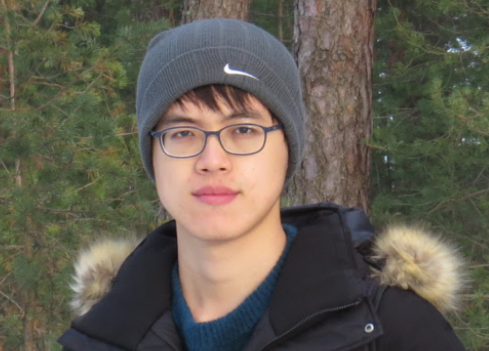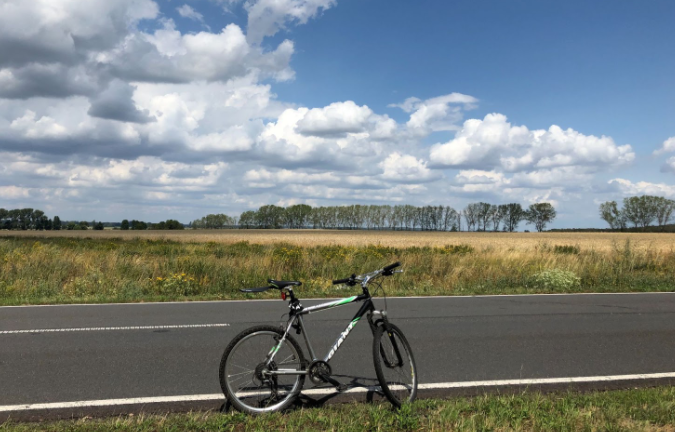Talking better product launch and allocation decisions with Ferrero USA
The global confectioner mitigates waste, improves service levels and controls costs by connecting digital supply chain visibility with POS analytics.
Keep readingChia-Lun Wu is a software engineer in Alloy’s Berlin office. Before joining Alloy, he worked as a software engineer at Forto in Berlin and Vyond in Taipei, Taiwan. He holds an MSc in Computer Science from National Taiwan University.
Lasse, our current head of engineering, sent me a message via LinkedIn one day back in 2019 and it drew my attention immediately. Not only was the message very well customised, but also what Alloy is building looked very interesting and challenging to me.
I was amazed by the demo that showed how Alloy, as an end-to-end unified platform, gives customers super power-like abilities to analyze metrics on products they’re selling across the globe in just a few clicks. Also, the UI is beautiful!
The high complexity of the problem Alloy is solving, the large data volume we’re handling and the major impact it can have on manufacturers and consumers all intrigued me. I was excited by the opportunity to apply my software engineering skills to create a positive impact in the real world.
I’m on the Engineering team that’s responsible for building a robust and efficient data pipeline. Our focus is bringing raw data in and transforming it into our internal model in a reliable and timely manner. I work mostly on the data pipeline infrastructure and the backend, with occasional work on the frontend for data tooling interfaces.
During my working day, I’m mostly writing code, reviewing others’ code and collaborating with other team members. Of course, resolving bugs/issues also accounts for an important part of my work.
As part of a project to improve our data pipeline efficiency and resiliency, I worked on making our automatic data collection process self-healing and more efficient overall. Alloy collects supply chain and retailer data from many different kinds of sources, so it was quite challenging.
We had to change our model to break down our data collection process into even smaller steps. This improvement enables us to better track execution progress so in the case of failures, the steps that have already been completed don’t need to be run again. We can also better control how we run the tasks to ensure our customers can access the most up-to-date data as soon as possible. Finally, it was exciting because it further automated our data collection, reducing the manual effort required by our team to keep our always-updating data in good shape.
Everyone can create a huge impact and the work we do is valued by others.
Data collection is just the first step in our data pipeline. There are lots of moving parts, so thinking how to nicely connect them together and make them all work as a single big machine is one of the most challenging aspects to me.
On top of that, the data and how it’s shared could change at any time, often without notice. Then we need to quickly adjust to the changes to prevent incorrect data from getting into our system.
Each person counts. Everyone can create a huge impact and the work we do is valued by others. It feels like we’re all in the same boat and driving the boat together in the same direction.
There are new tools, libraries and languages coming out everyday, but fundamental computer science knowledge will hold true for much longer. I think it’s best to equip yourself with the fundamentals first. Then you can walk into the software engineering amusement park confidently, without feeling overwhelmed.
Before going to college, I already liked building things (though not software). Then after I started to study computer science in college, I realized the beauty of software engineering – it allows me to build things in the virtual world, where the only limitation is my imagination and I can do it anywhere in the world as long as I have a computer! It also felt tremendously satisfying when I used or played with the things I built. It’s just fun!
I like to explore new places (especially nature) by bike! I enjoy riding through the breeze and sunshine and having no barriers between me and the outside world.
The global confectioner mitigates waste, improves service levels and controls costs by connecting digital supply chain visibility with POS analytics.
Keep readingHow to take an iterative approach to digital supply chain transformation with real-time alerts that motivate teams to collaborate on issue resolution
Keep readingUnderstand how gaps between systems, teams and processes are keeping you constantly firefighting and hurting your supply chain resilience
Keep reading

